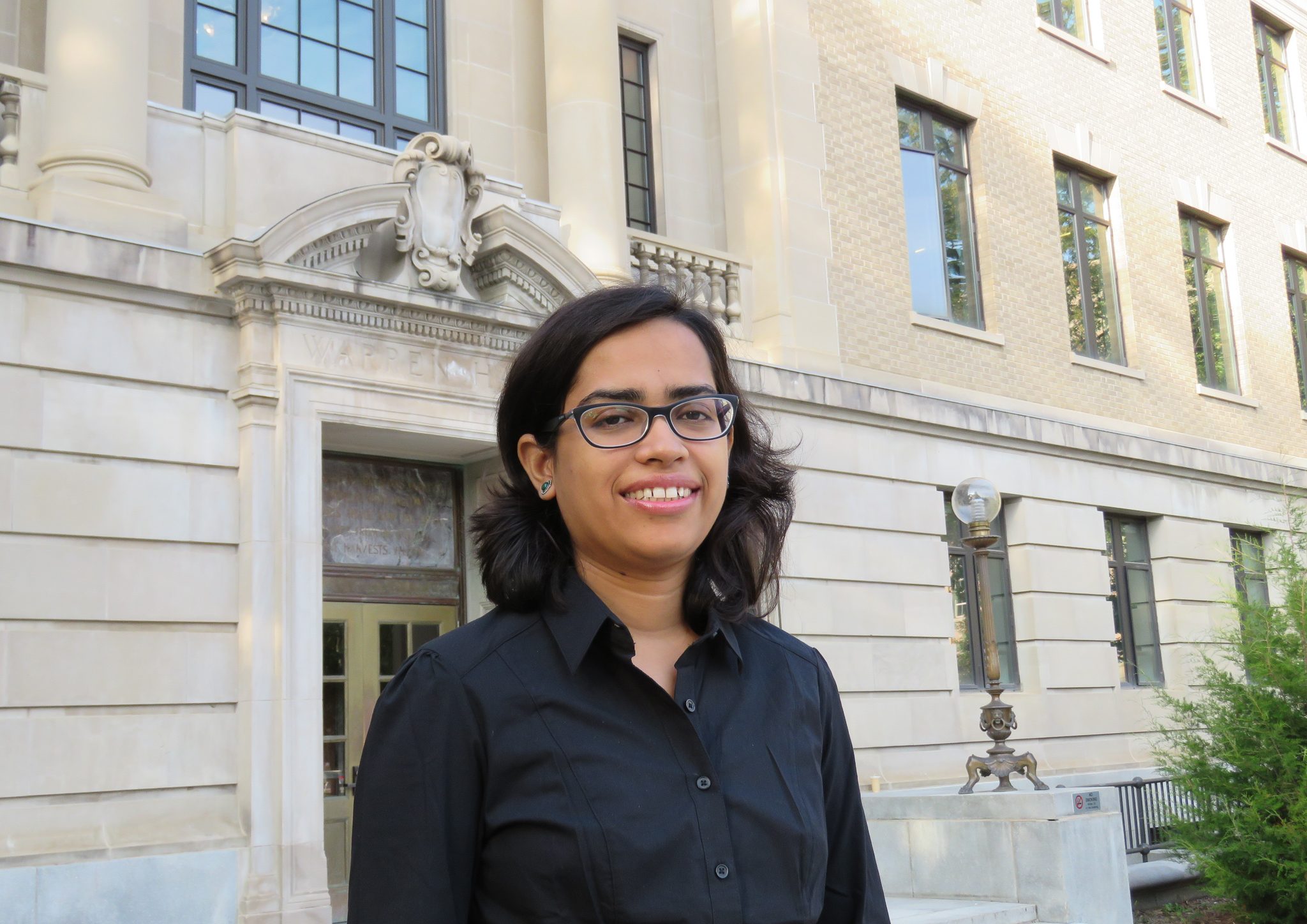TCI Alumna Joins Faculty at Azim Premji University

Less than a year after earning her doctorate in applied economics and management at Cornell University, Tata-Cornell Institute for Agriculture and Nutrition (TCI) alumna Shiuli Vanaja will soon complete her first semester as an assistant professor of economics at the Azim Premji University in Bangalore, India.
Vanaja joins a small but growing economics department at the university, where teaching and research are both valued. “Even though it is a teaching-centric place, there is a lot of focus on doing intense research and my colleagues here are involved in quite diverse and interesting research,” Vanaja said.
In her first semester, Vanaja is teaching courses in development economics and research methods. While the development economics course is for economics majors, the research methods class is open to all students who are pursuing a minor in development and sustainability. “It is an interesting as well as challenging learning experience to teach research methods to students from various different disciplines,” Vanaja said.
As a TCI Scholar, Vanaja’s research focused on household water access, specifically how people in rural India choose water sources and the impact that safe, piped water has on how women use their time. She found that people judge the quality of water based on color and taste when objective information is missing. She also found that households with piped water saved about 60 minutes per day on water collection, which gave women more time to spend in their primary occupations.
Field research is a cornerstone of the TCI Scholar program, which brings together students from a variety of disciplines with an interest in issues related to agriculture and nutrition. During her studies, Vanaja spent 18 months doing fieldwork in rural Jharkhand, which was made possible through TCI’s support of a project providing piped water systems to villages in the state. She credits TCI with teaching her the importance of policy-driven work rooted in extensive fieldwork, in addition to the value of working within an interdisciplinary framework.
“I believe that I could not have received a better training and learning experience than what I received at TCI to succeed as an empirical economist with interests in issues of development, resources, and gender in rural areas of developing countries like India,” Vanaja said.
Vanaja is continuing the research she began at TCI. She is currently working on two papers related to her water access studies. She is also planning new projects, including research on the intra-country migration of women in India and its impact on their health and nutrition.





